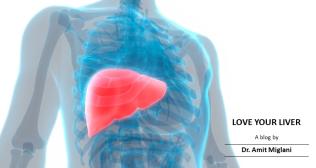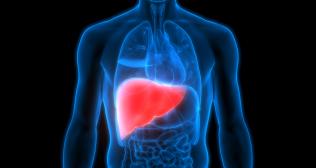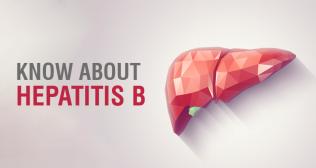
Daily Caloric Intake How Many Calories Do You Really Need
Maintaining a healthy lifestyle has become a challenging task these days. The amount of food consumed these days is weighed in terms of calories. But a few questions arise: Which food contains how many calories? How much of calories should one consume on a daily basis? What exactly happens if one consumes a high-calorie diet? Such question buzzes in today’s generation. Whether one decides to lose weight, gain weight, build muscles or simply try to maintain the current weight, the key to achieving these goals depends on the daily intake of calories.
What is a calorie?
A calorie is a form of energy that the body uses to perform its daily functions, such as walking, running, skipping, swimming, jogging, breathing and even thinking. These calories are usually obtained from carbohydrates, proteins and fats, which are broken and converted into glucose, amino acids and fatty acids. Each of these molecules provides a different amount of energy. Eating the right amount of calories is the most essential for maintaining a good, healthy life. The amount of calories required for an individual varies from person to person based on their age, size, daily activity performed and body consumption.
When you consume food, your body breaks it down into molecular form and adsorbs the content into your body. Each of the biomacromolecules will provide you with different kinds of energy sources and vary in generating the amount of calories. Let’s take an example of carbohydrates, which are broken down into sugar molecules which provide four calories per gram. Protein is degraded into amino acids and provides a caloric consumption of four calories per gram. However, fat consumption leads to major caloric intake, that is, nine calories per gram.
Once you determine your food intake and the contents you consume, you can easily keep track of caloric intake per day. But the question is, ‘How much calories needed per day?’ There are several ways that caloric intake and utility are influenced.
How to calculate your daily intake of calories?
There are many methods to calculate the amount of calories required for an individual based on the amount of energy utilised in total daily energy expenditure. The most common caloric intake calculator used is total daily energy expenditure (TDEE). There are steps to follow, which include:
Calculate your basal metabolic rate: This is the performance measure of whole-body functionality at rest. In simpler terms, the amount of calories that are burnt to perform various physiological exercises such as breathing, circulation of blood or regulation of body temperature at rest is termed BMR. The BMR varies from person to person, thus differing in the requirement of calories. There are various formulae to calculate BMR; however, most scientifically, the Mifflin-St Jeor Equation is employed.
Keep an account of your physical activity: Once you have calculated your BMR, you have to multiply the factor called the activity factor by keeping an account of your physical activity. Some of the common levels and their multipliers include:
- Little or no exercise: If your physical activity is minimal or nonexistent, your multiplying factor would be 1.2.
- Light exercise: Let’s say you work out or get involved in sports activity for 1–3 days per week. Your common multiplying factor would be 1.375.
- Moderately active: If you engage in physical activity 3–5 days a week, you have to multiply your BMR by 1.55.
- Very active: If you are active on all days of the week, you have to multiply your BMR by 1.725.
Adjusting the values to your upcoming goals: So, coming back to the question, ‘How much calories needed per day?’ The requirement of caloric intake for each individual would vary depending upon the needs of an individual. A person who is willing to lose weight has to subtract 500–1000 from TDEE, which would probably result in 1 kg weight loss in a week. If a person needs to gain weight, add 250–500 calories to TDEE to promote muscular growth.
Factors that would affect the caloric intake
There is never one answer to this question. If someone is wondering, ‘how much calories a day do I need?’, the ideal caloric intake would be different based on several factors, including:
- Age: Age plays a significant role in the consumption of calories and the requirement as such. Generally, the younger population would require a higher caloric intake due to the rapid growth of their body and increased BMR. As one ages, their metabolic rate gradually slows down, and the requirements of caloric intake decrease.
- Gender: Men and Women are physiologically different, with distinct caloric requirements. Men tend to require more calories due to their masculinity as well as muscle mass. However, it depends upon the individual level of physical activity and the lifestyle.
- Activity level: This is one of the most important factors that contribute to the need for calories. If the person is actively involved in physical activity, the calories are burnt on a regular basis, which would straightforwardly require a higher number of calories and vice versa.
- Body composition: Each person is built differently in terms of a ratio of fat mass to lean mass. Individuals who are obese and want to burn their fat mass would require fewer calories to aid in support of their weight loss journey.
Common caloric intake guidelines
There are many guidelines available, but to provide you with a rough idea of how many calories you should eat a day, here are some common calorie consumption recommendations:
- Sedentary women: Females with minimal to no physical activities are advised to consume calories ranging between 1600–1800 calories per day.
- Sedentary men: A man with less physical activity is recommended to consume 2000–2200 calories per day.
- Active women: Those women who are regularly exercising and are involved in physical activity most days a week should consume 1800–2200 calories per day.
- Active men: They should consume around 2200–2800 calories per day.
- For highly active individuals or athletes, the requirement of calories would go as high as 9900 calories per day. However, the best way to determine the intake would be to consult an experienced dietician.
Conclusion
When it comes to the question ‘How many calories should I eat?’, every individual has a different answer. However, consuming an appropriate quantity of calories would keep your body healthy and aid in your health goals. Always consult a dietician before deciding your caloric consumption rate.



















